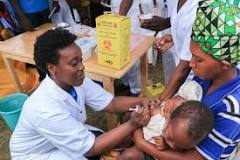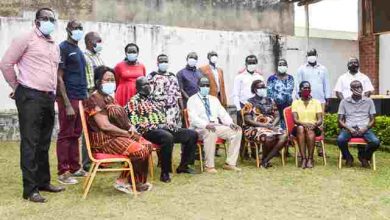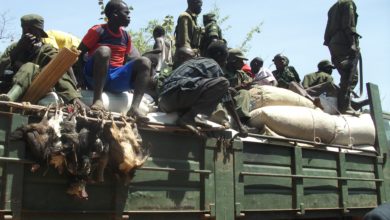
Our Reporter Simon Wokorach Brings the Story From Northern Uganda;
Gulu district health department is seeking an additional 28 million shillings for the mass vaccination against measles and rubella diseases.
The district last week received 152 million shilling from the ministry of health for the exercise that will start from 15th to 19th of October.
However the health department says the money is not enough for the 163 vaccination centers within the 16 sub counties.
Rose Jenny Okilangole, the Acting Gulu District Health Officer disclosed that the district had budgeted 187 million shillings for the projected 137,220 children aged zero to five years.
Okilanglole said that the district is still cash strapped of 28 million shillings which is required for effective implementation of the exercise especially at institutional levels.
The money she says will be used for monitoring, coordination, supervision, mobilization and logistics arrangement s for the exercise.
Milton Kato, the Gulu District Chief Administrative Officer says the district is seeking for support from development partners since it has no cash in its account for the exercise yet it is only two weeks ahead.
William Onyai, the Gulu District Health Educator said on Tuesday that several contacts is being made with development partners to bridge the gap.
However, Emmanuel Ainebyoona the Ministry of Health spokesperson says the district can request more support from the Uganda Expended Program for Immunization (UNEPI) to address the plight because the ministry cannot provide more money.
Measles outbreak was reported in over 56 districts since 2018. Government announced a five days mass vaccination against the diseases this month.
According to World Health Organization (WHO), Measles is a highly contagious viral that is transmitted via droplets from the nose, mouth of throat of infected persons. Initial symptoms usually appear 10-12 days after infection.
Common complications include Pneumonia and diarrhea. Death may occur in up to 5-10% of infected young children in developing countries.
Rubella is also a contagious viral disease that is transmitted in airborne droplets when infected people sneeze or cough.
Though milder than measles, when rubella infects a pregnant woman during the first half of her pregnancy, there is danger of fetal death or severe birth defects that especially affect the eyes, ears, heart and brain.






